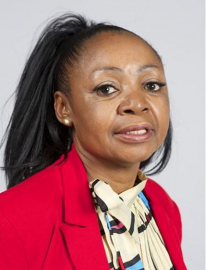
Public Service and Administration Deputy Minister, Dr Chana Pilane-Majake, says 22 government departments have been submitting monthly reports on the implementation of the National Strategic Plan on Gender-Based Violence and Femicide (GBVF).
Pilane-Majake said this when she participated in the debate on Women’s Day in the National Assembly on Tuesday.
Many MPs said during the debate that women bear the brunt of poverty, inequality and the scourge of GBVF.
“President Cyril Ramaphosa also launched the Private Sector Gender-Based Violence and Femicide Fund at the end of 2020 and almost immediately, corporates pledged R128 million to the fund.
“To date, 22 departments have submitted their monitoring and evaluation plans on the National Strategic Plan on Gender-Based Violence and Femicide and they have been reporting monthly on their progress to the Department of Women, Youth and People with Disabilities,” she said.
Pilane-Majake said government, in partnership with other stakeholders in the country, is putting in place measure that seek to address the scourge.
Following the 2018 march against the high levels of GBVF in the country, and the subsequent Presidential summit on ending gender-based violence and femicide, a National Strategic Plan was developed and launched by the President on 20 March 2020.
“Since then, there have been a number of measures that were implemented. An Inter-Ministerial Committee on GBVF that comprise of key Ministers has been established.
“One of the responsibilities of this Ministerial committee on gender-based violence and femicide has been to promote and integrate the National Strategic Plan on Gender-Based Violence and Femicide into government’s planning and budgeting processes.”
Government has allocated R21 billion over the next three years to address the issues of GBVF through implementing six pillars of the National Strategic Plan.
Pilane-Majake said the processes of establishing the National Council on Gender-Based Violence and Femicide will commence once the legislation that regulates the mandate, operations and powers and functions of the National Strategic Plan is in place.
Socio-economic impact of COVID-19
The Minister said, meanwhile, that women are faced with many challenges, which have been exacerbated by COVID-19.
Citing research, Pilane-Majake said the COVID-19 pandemic has had a disproportionate impact on women as they comprise the frontline workers in the health and education sectors and police, and are the forerunners in the care and responsibilities in their households.
“Economically, women have suffered a severe economic and social impact from the lockdown imposed to curb the spread of the virus.
“Research also shows that women accounted of two thirds of the total net of job losses.
“Women are more likely than men to live in households that have reported running out of food and money in April 2020 at the onset of COVID-19.”
Pilane-Majake said in addition, the closure of schools resulted in more women than men having to take care of children and spending more hours in childcare.
“It is thus clear that adverse effects of COVID-19 on women are more on women and the economy, health and education and food security are in men. Women bear the brunt of poverty in South Africa, with young women, especially African women, worst affected.” – SAnews.gov.za


